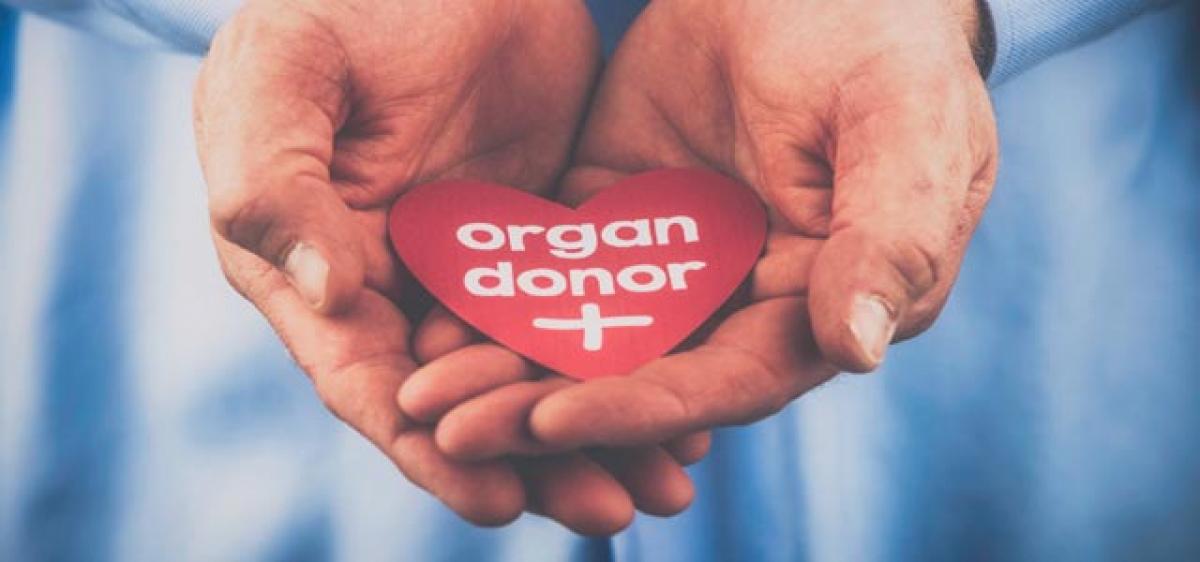Live
- Gurukula zonal level sports meet concludes
- Vagdevi Jr College student selected for national basketball tourney
- Maoist area committee member arrested
- Collectorate staff protest attack on DC
- Villagers urge authorities to continue launch service even after construction of bridge
- MLA Padmavathi launches free lunch for readers
- Police high-handedness sparks outrage in Kodangal
- Khichi elected mayor of Delhi
- Sports enthusiasts encouraged to focus on achieving their goals
- SC agrees to hear plea related to Delhi pollution
Just In

Doctors in India will now get text alerts reminding them to ask families to donate organs of their deceased loved ones as part of a nationwide campaign to solve the country\'s organ shortage that has fuelled a black market trade in organs.
Doctors in India will now get text alerts reminding them to ask families to donate organs of their deceased loved ones as part of a nationwide campaign to solve the country's organ shortage that has fuelled a black market trade in organs. The drive, "Poochna Mat Bhoolo" - which means "don't forget to ask" in Hindi - will target 300,000 doctors and is the latest in a string of awareness campaigns in the country after a kidney racket involving a poor woman was busted in a top Mumbai hospital last year.
According to government data, 200,000 people are waitlisted for kidneys in India and 30,000 currently await a liver. Legal donations meet about 3 to 5 percent of the demand. "Families don't remember to donate organs when a loved one dies, or it's too late by the time they do. So we are reminding doctors to speak to them immediately after a death," said Krishan Kumar Aggarwal, president of the Indian Medical Association, which launched the drive. "Human trafficking for organs will stop if cadaver organ donations pick up." Commercial trade in organs is illegal in India.
Donations to a patient by a close relative are allowed but are few in number. Some waitlisted patients, in desperation, seek the services of middlemen to arrange organs for money. The middlemen scout villages for potential donors, whom they sometimes lure with money and false promises of a job in the city. "Organ failures are commonly caused by lifestyle diseases and most often affect the rich, which leads to the possibility of exploitation of the poor," says Anil Kumar, who heads India's organ transplant programme.
His department has been alerted to various forms of organ trade - from people posting advertisements on websites offering money to donors, to kidnappings for organs, as well as people from Nepal trying to sell organs in India to rebuild their homes after the earthquake. Campaigners say the organ supply-demand gap can be bridged if doctors, particularly those in intensive care units of major hospitals, are sensitised to counsel families to donate organs. The "Poochna mat bhoolo" campaign is critical as it would have doctors speak to families, eliminating middlemen. Posters reminding doctors to ask the donation question will be put up across hospitals as part of the campaign. (Reuters)

© 2024 Hyderabad Media House Limited/The Hans India. All rights reserved. Powered by hocalwire.com







